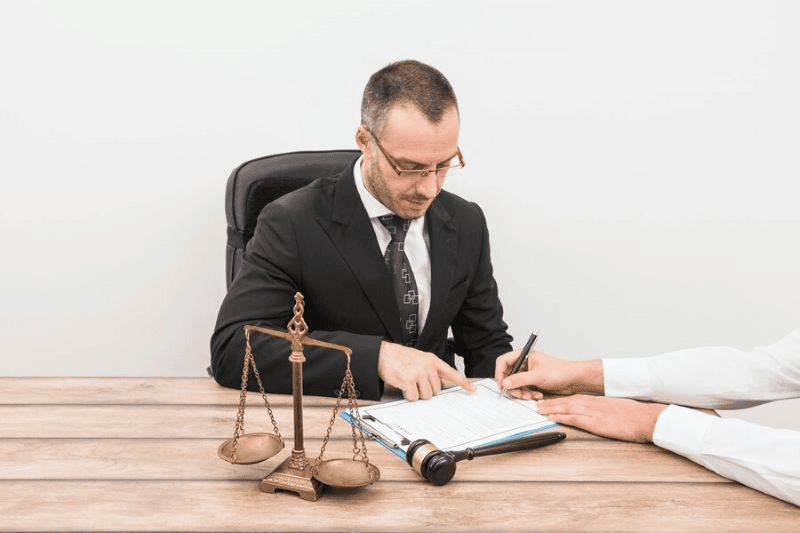
If you’ve ever been in a car accident in Nevada or are wondering about the claims process, you may have asked yourself, “Do insurance companies call witnesses?” Witness testimony can play a crucial role in determining the outcome of an insurance claim, and it’s essential to understand the significance of witnesses in the claims process, especially in the region of Nevada.
What Happens When an Accident Occurs?
When a car accident occurs, whether it’s a minor fender-bender or a more severe collision, the first step is to ensure the safety of everyone involved. After that, you need to report the accident to the police and exchange information with the other driver. This information typically includes insurance details, contact information, and, if possible, witness information.
Witnesses to the accident scene can provide you the valuable evidence that helps establish the sequence of events and determine who was at fault. Their unbiased account of the crash that happened can be beneficial in the claims process, as it may corroborate or challenge the statements made by the involved parties.
What Are Witness Statements?
Witness statements are written or verbal accounts provided by individuals who witnessed the accident. These statements can vary in detail, but they typically include information about what the witness saw, heard, and experienced during the accident. Witness testimony can provide a different perspective on the incident, offering additional insights that can be invaluable when determining fault.
The Role of Witnesses in the Claims Process
When you file an insurance claim, an insurance adjuster from yours or the other driver’s insurance company will be assigned to your case. They will investigate the accident, gather evidence, and evaluate the claims made by all parties involved. Here’s a concise look at why witness statements are so vital:
Unbiased Accounts: Witnesses offer an impartial view of the accident, enhancing their credibility since they don’t have a personal stake in the outcome.
Corroboration: Witness statements can reinforce your account of the accident, strengthening the credibility of your claims.
Establishing Fault: Witnesses can help you determine who was at fault for the accident, a crucial factor in liability determination.
Assessing Injuries and Damages: Witness observations of injuries and damages provide essential evidence for calculating compensation.
Dispute Resolution: Consistent witness accounts can expedite dispute resolution by clarifying the sequence of events.
Impartial Documentation: Witness statements are considered impartial documentation, more reliable than statements from involved parties.
Support for Compensation: Witness statements bolster your compensation claim, facilitating the process of securing the appropriate reimbursement for your losses.
The Credibility of Witnesses
In any accident case, the credibility of witnesses is crucial. Insurance adjusters and legal professionals look for credible witnesses who can provide a reliable and unbiased account of the events leading to the accident. A credible witness is someone who is not a convicted felon and has no personal interest in the outcome of the case. Their testimony is typically more reliable and likely to be given more weight in the claims process.
Factors that Affect Witness Credibility
Witness credibility is a crucial aspect of legal proceedings, as it can significantly impact the outcome of your case. Several factors can influence how a witness’s testimony is perceived by judges, juries, or legal professionals. Understanding these factors is essential for you to assess the strength of witness statements. Here are some key elements that affect witness credibility:
Demeanor and Composure: A witness’s overall demeanor, body language, and composure on the stand can greatly affect their credibility. Confidence, clarity, and poise can make a witness appear more believable.
Consistency: Consistency in a witness’s statements, both within their testimony and when compared to previous statements, is vital. Inconsistencies or contradictions can cast doubt on a witness’s credibility.
Bias or Self-Interest: Any perceived bias or self-interest on the part of a witness can raise questions about their credibility. For example, if a witness has a personal stake in the outcome of the case, their testimony may be viewed with skepticism.
Character and Reputation: A witness’s character and reputation can influence their credibility. Witnesses with a history of dishonesty or untrustworthiness may be less credible in the eyes of the court.
Motive to Lie: Assessing whether a witness has a motive to lie or fabricate their testimony is critical. If there’s a clear reason for a witness to provide false information, their credibility may be compromised.
Perception and Memory: The accuracy of a witness’s perception and memory can impact their credibility. Witnesses who have difficulty recalling details or appear uncertain may be seen as less reliable.
Corroboration: Witness testimony that is supported by other evidence or witnesses tends to be more credible. Independent corroboration can strengthen a witness’s credibility.
Expertise and Qualifications: In cases where expert witnesses are involved, their qualifications, knowledge, and expertise can affect their credibility. The court may consider their background and experience when evaluating their testimony.
Manner of Testimony: The way a witness presents their testimony, including their tone, language, and willingness to admit uncertainty, can influence their credibility. A forthright and honest demeanor is often viewed favorably.
Inconsistencies with Physical Evidence: If a witness’s testimony contradicts physical evidence, such as photographs or documents, it can undermine their credibility.
The Value of Police Reports
In Nevada, as in most other states, the police will arrive at the accident scene, assess the situation, and create a police report. This report is an essential piece of evidence that can influence the claims process significantly. It typically includes details about the accident, statements from drivers and witnesses, and the officer’s opinion on who may be at fault.
Insurance adjusters often rely on police reports to assess fault, but they may also conduct their investigations. This involves gathering witness information, taking recorded statements, and assessing the extent of property damage and personal injuries. They will also contact potential witnesses to gather more information and cross-examine their statements.
Why Do Insurance Companies Call Witnesses?
Insurance companies call witnesses to collect as much evidence as possible to evaluate claims accurately. They do this to protect their interests and ensure that they pay out a fair and reasonable amount in compensation. By gathering witness statements, insurance companies aim to:
Prove Fault:
Witness statements can help them establish who was at fault for the accident. This determination is crucial for determining liability and calculating compensation.
Verify Statements:
Witness statements can corroborate or challenge the statements made by the involved parties. If a witness’s statement aligns with one party’s version of events, it can strengthen their case.
Assess Injuries:
Witnesses may have observed the extent of injuries sustained by the parties involved. This information is essential when calculating compensation for medical bills and other damages.
Evaluate Property Damage:
Witnesses can also provide details about the extent of property damage caused by the accident, which is essential for assessing the cost of repairs or replacements.
Obtain an Unbiased Account:
Since witnesses are typically unbiased, their statements can provide an impartial account of what transpired, free from personal interest or bias.
Resolve Disputes:
In cases where there is a liability dispute, witness statements can help resolve these disputes and reach a fair settlement.
What Can You Do to Protect Your Interests?
If you’ve been involved in a car accident in Nevada and are concerned about the role of witnesses in your insurance claim, consider taking the following steps:
Gather Witness Information:
At the scene of the accident, collect the contact information of any potential witnesses. This information may be crucial later when the insurance company investigates your claim.
Seek Legal Counsel:
Consult with an experienced car accident attorney who can guide you through the claims process, help you gather evidence, and ensure your best interests are protected.
Be Honest and Accurate:
When providing statements to the insurance company, be truthful and accurate about what you remember from the accident and how the accident occurred. False statements can harm your credibility and claim.
Document Everything:
Keep detailed records of your medical treatment, property damage, and any expenses related to the accident. This documentation can support your compensation claim.
Consult with an Experienced Attorney:
An experienced personal injury attorney can help you navigate the complex claims process, negotiate with insurance adjusters, and ensure you receive the maximum compensation you deserve.

Consult With a Skilled Car Accident Attorney at BLG
In conclusion, witnesses play a crucial role in the claims process of car accidents in Nevada. Insurance companies call witnesses to gather evidence, establish fault, and ensure a fair resolution for all parties involved. It’s essential to understand the significance of witness statements and how they can impact your insurance claim. If you have questions or concerns about your car accident claim, consider seeking a free consultation with an experienced attorney who can provide you with the best guidance for your situation. Your attorney will work to protect your interests, ensure a fair outcome, and help you receive the compensation you deserve.
Ready to protect your interests and maximize your compensation? Consult a skilled car accident attorney at BLG today! Our experienced lawyers will guide you through the claims process and ensure your best interests are prioritized.
Contact us now for a free consultation.





